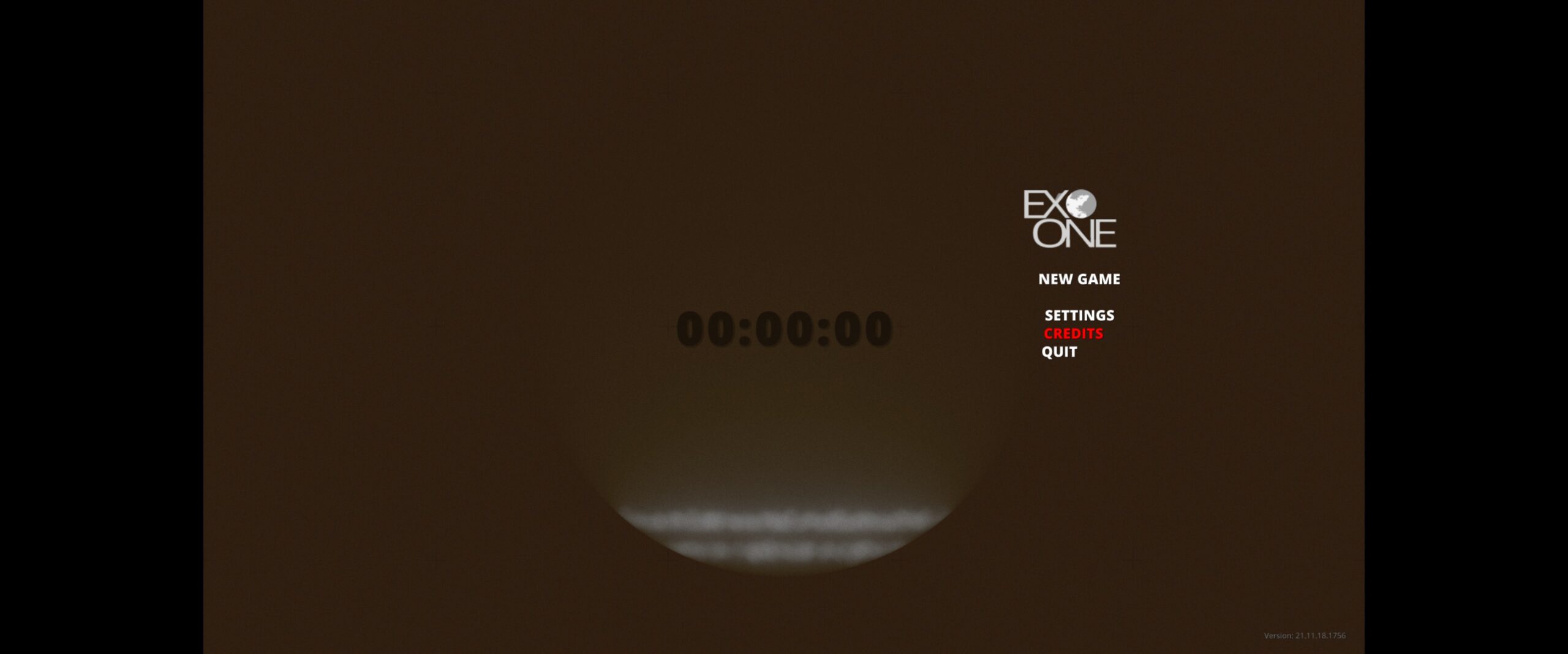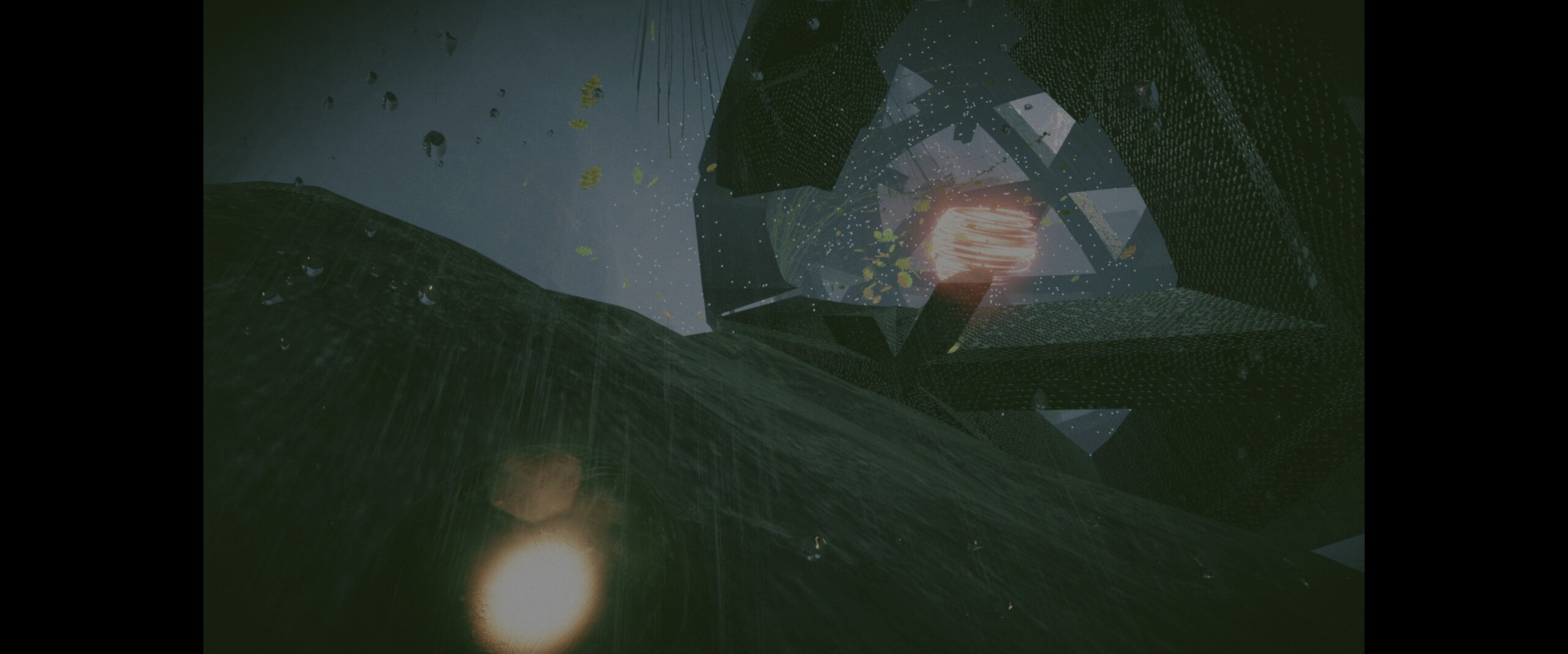Bashing Kickstarter games for missing their timelines feels like a bit of a dead horse these days. It seems pretty much all of them underestimate just how much work is between them and whatever their final product ends up becoming, even if it’s woefully short of their creative vision. Indeed even for those that do make what they set out to achieve often there’s been so much time between campaign and release that the games themselves show their age through their craftsmanship. Exo One is exactly this, as it’s a game that feels like it was supposed to be released a long time ago (perhaps, 2018) and the intervening years don’t seem to have done much to improve upon what was demonstrated in the original Kickstarter videos. You wouldn’t know this looking at the Steam reviews though, as it seems the faithful backers of this game got exactly what they wanted. For me though? It feels unpolished, simplistic and lacking in all the supposed things that were to make it good.

Humanity’s first attempts to push our space travel boundaries ended in disaster, our first trip to Jupiter met with the loss of the craft and all the brave astronauts aboard it. However a strange alien signal was emitted from the same location one year later and in it was contained the blueprints for a gravity defying craft that was impervious to damage. You are in charge of this craft, the Exo One, and your obsessive desire to find what happened to the crew and, hopefully, bring them back home is what’s driving you to explore numerous exoplanets in this alien spaecraft.
It’s been a while since I’ve played a game that had that trademark “Unity” feel to it; that kind of simplistic art style that makes heavy use of a certain kind of assets that gives it a now dated look. This is very much inline with what was presented in the Kickstarter videos however and, back then, it wouldn’t have been as out of place as it is today. Still though it does make me wonder about how much of the developer’s time was spent on further developing the art style in the years following the campaign as even the new planets that aren’t demoed there don’t look that much more different to what’s presented there (indeed two of them are mostly water planets, kinda hard to get much variety there).

Exo One doesn’t make any grand promises around mechanics or game play though, delivering exactly what it sets out to do. You’re in charge of an alien ship that can switch between two gravity modes: heavy which will send you rocketing back down to the surface and light which allows you to glide along. The idea here being something like the skiing mechanic in Tribes (for those old enough to remember that game), you engage heavy mode as you’re going down a hill and release it when you’re going up one. Then you can glide for a while before you rocket yourself back down, hopefully in a somewhat strategic location so you can really get some speed up. It does take a little getting used to but after a while you’ll figure out the basics as well as some other ancillary mechanics that makes moving about rather painless.
The trouble comes with exploration in the world as, whilst it is procedurally generated, certain items appear to be in fixed locations and deviating away from the correct path will just put you in an endless loop of random terrain. There are things to guide you of course but this then begs the question of why it’s procedurally generated in the first place. Typically you’d do that and then have the necessary elements generate at fixed intervals, giving the player the feeling that they really did stumble across something in the middle of nowhere. Couple this with a few of the items requiring a level of precision that’s not readily achievable with the game’s controls you can have a rather frustrating time in some levels.
This isn’t helped much by the game’s mediocre story that’s, for all intents and purposes, told through subtitle text that are backed by distorted speech. Given the lack of character development and no other storytelling elements present in the game there’s not a lot to chew on here narratively, so the gameplay is left to stand on its own merits. Unfortunately, given that there’s also not a lot there it makes the overall game feel a bit lacklustre. Not entirely terrible, but not something that I could really recommend to anyone but the die hardest of fans of the momentum genre of games.

So I’m here left wondering what the appeal was to those numerous backers all those years ago. To me Exo One seems like the kind of game I’d expect from a single dev shop, one who works on it in their spare time and does it out the passion for their own idea. But this comes to us care of a team of people who seem to have an incredibly dedicated fan base for just this game. Honestly I can’t see what I’m missing here but that doesn’t change my overall feelings of the game. It’s not bad, it’s not great and I’m not rushing out to get another playthrough in for any reason.
Rating: 6.5/10
Exo One is available on PC right now for $23.95. Total play time was 2.1 hours with 42% of the achievements unlocked.



